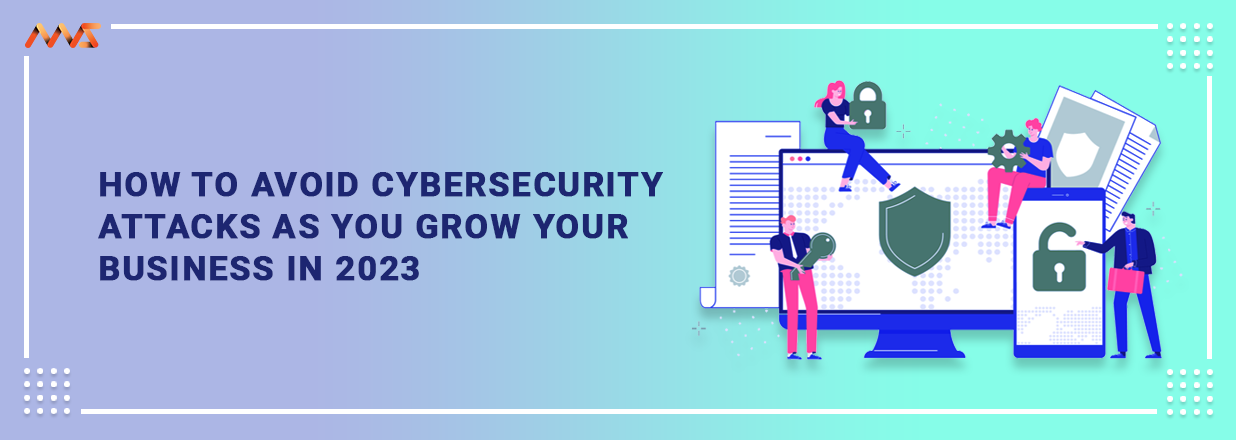Most people think cybersecurity is highly technical, constantly evolving, and complicated, They are correct.
Despite the complexity of cybersecurity, our experts claim that clients frequently need help with the most superficial security issues. Why? Because these "simple" issues attack the company's fundamental assumptions about its security operations. If you make a mistake with those, your entire business is at risk.
Small businesses are still susceptible to big cyberattacks. As many smaller businesses refuse to invest in the cybersecurity protocols that might keep them safe, they can be a lucrative target for hackers. 46% of all data breaches happen at businesses with fewer than 1,040 employees.
Small businesses are particularly hurt by breaches because they lack the resources to cope with the repercussions on their clients' reputations or to cover costly fines. Thankfully, smaller businesses may now acquire cybersecurity products of the highest caliber at a cost that fits their budget. Knowing where your holes are and creating a plan to maintain, patch, and mitigate from there are the keys to success. With the correct assistance, a small business can be protected on par with a larger one.
Cybercriminals now have access to new playing fields to the fast dispersion of work teams. Traditional security mechanisms need to be fixed as more of us operate on a mix of personal and business devices. In May 2022, there were approximately more than 100 million attacks on remote management devices, a five-fold increase from the previous month, according to a warning from Microsoft. In the upcoming year, their firm will probably encounter a cyberattack, according to the majority (51%) of top IT professionals, according to the Cybersecurity 2022 survey.
What's The Zero Trust Architecture
New standards are being developed by the ‘National Cybersecurity Center of Excellence' working group to assist business leaders in addressing the security issues associated with remote working. They adopt a "zero trust architecture" as the foundation of their strategy, which "focuses on resource access in a safe manner, independent of network location." They accomplish this by merging different IT solutions to create "a standards-based reference design" that can be customized to your company's unique requirements.
The proposed guidance reminds us, "Compliance policies can help protect organizational data by requiring users and devices to achieve some criteria." It describes how Microsoft Defender compliance policy is set up, enabling the manager to establish particular access requirements. Network security can be better managed by checking that devices adhere to a set of approved standards before allowing data flow.
How To Protect Cyber Security Threats?
- Ensure Endpoint Protection
Remotely bridged networks are protected by endpoint protection. Security threats can access corporate networks through mobile devices, tablets, and laptops. Endpoint protection software designed for these pathways is required.
- Carry Out Risk Assessment
Analyze potential threats that could jeopardize your business's networks, systems, and data security. Identifying and evaluating potential risks can aid in creating a strategy for closing security holes.
Determine where, how, and who has access to your data as part of your risk assessment. Determine potential users of the data and their potential methods of obtaining it. Ask your cloud storage provider for assistance with risk assessment if your company's data is kept there. Establish the risks associated with prospective occurrences and the potential effects of breaches on your business.
- Regular Data Backups
Does your business maintain file backups? In the event of a cyberattack, data may be lost or compromised. Could you still manage your business if that happened? Don't forget to consider the amount of data that could be kept on laptops and mobile devices; many organizations couldn't run without it.
Use a backup programme that copies your files to storage automatically to help. You can use your backups to restore all of your files in the event of an attack. To avoid remembering to back up your data, use an application that lets you plan or automate the operation. Keep backup copies offline to prevent them from being encrypted or unavailable if your machine fails.
- Encryption Of Key Data
It's best practice to have an encryption scheme in place if your company frequently interacts with sensitive data such as that linked to bank accounts, credit cards, and other financial transactions. Data is kept secure by encryption, which converts information on the device into incomprehensible codes. Even if your data were taken, it would be useless to the hacker since they wouldn't have the keys to decode the data and decipher the information because encryption was developed with the worst-case scenario in mind. In a world where billions of records are exposed every year, that is a reasonable security measure.
Are You Looking For Trusted Cyber Security Experts For Your Business?
To gain more insight into the cybersecurity challenges of businesses today. “We at martvalley services provide unified information cyber security management services to your organization.”


